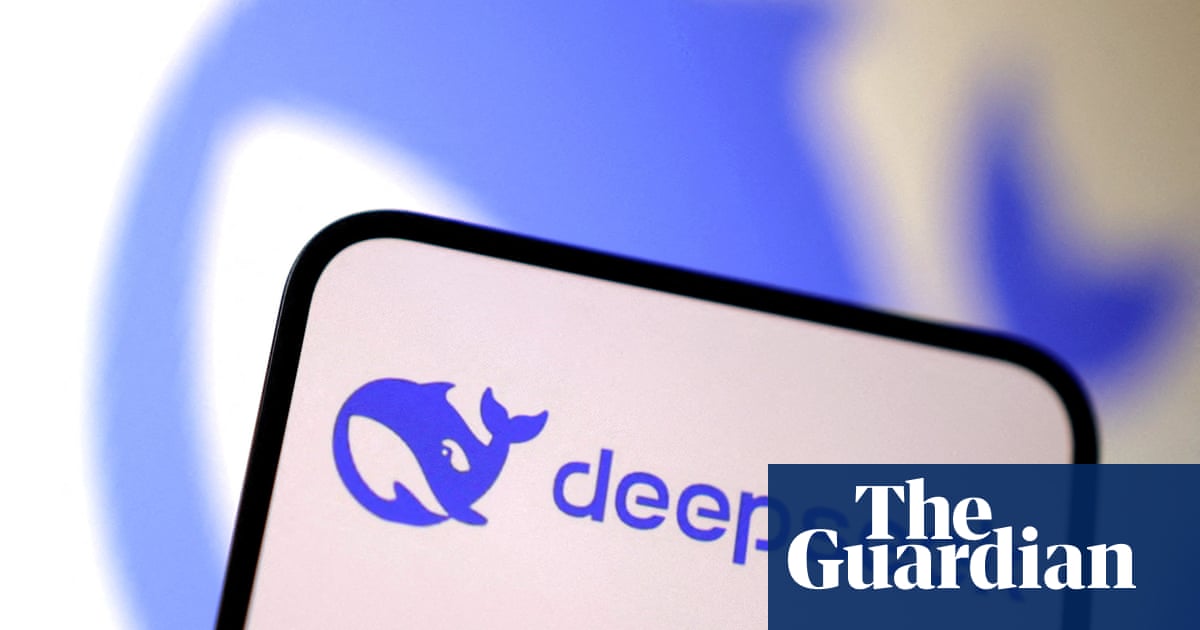As I sat watching Howard Lutnick address the Senate about the rising threat from the AI landscape, I felt a mix of concern and urgency—urgency that the United States must reclaim its technological supremacy. Lutnick's remarks about DeepSeek resonated deeply; it’s a striking reminder of how fast-paced and competitive the tech race has become. The conversations we have around artificial intelligence today could very well shape our tomorrow.
The Rise of DeepSeek: A Game Changer in AI
DeepSeek is making waves in the AI world. It’s not just another chatbot; it’s a large language model (LLM) that operates with a remarkable efficiency. What does that mean for us? Simply put, DeepSeek consumes 60% less energy than its competitors. That’s a game changer. Imagine being able to achieve the same results while using less power. This efficiency is a critical factor in its rise.
Overview of DeepSeek's Technology and Capabilities
So, what exactly does DeepSeek bring to the table? It’s designed to understand and generate human-like text, much like OpenAI’s ChatGPT and Google’s Gemini. Yet, it does so with significantly lower resource consumption. This means that companies can deploy it without needing massive server farms or extensive energy resources.
- Energy Efficiency: DeepSeek’s low resource consumption allows for broader adoption, especially in regions where energy costs are high.
- Speed: Users report faster response times compared to traditional models.
- Versatility: It can be used in various applications, from customer service to content creation.
In a world where every second counts, being quick and efficient can make all the difference.
Impact on Market Competition
The rise of DeepSeek is shaking up the market. Western companies, especially tech giants like Nvidia, are feeling the pressure. As DeepSeek gains traction, it triggers stock losses for these firms, with estimates suggesting losses exceeding $10 billion. That’s not just a small hiccup; it’s a significant shift in the landscape.
Howard Lutnick, President Trump’s commerce secretary nominee, has pointed out that the U.S. must stay ahead. He stated,
“We must remain vigilant to protect our technological edge.”This sentiment reflects a growing concern among U.S. officials regarding competition with Chinese technology.
But why is this competition so fierce? It boils down to the efficiency and capabilities of these AI models. With DeepSeek operating on less energy, companies can allocate resources elsewhere, potentially leading to more innovation and lower costs for consumers.
User Adoption Rates and Implications for Traditional AI Models
As DeepSeek becomes more popular, user adoption rates have skyrocketed. It’s not just tech enthusiasts who are interested; businesses are eager to integrate this technology into their operations. This surge in adoption raises important questions:
- Will traditional AI models like ChatGPT and Gemini be able to compete?
- What happens to the market if DeepSeek continues to dominate?
The implications are vast. If more businesses choose DeepSeek over traditional models, we might see a shift in development priorities. Companies may invest less in older technologies, which could stifle innovation in those areas.
Moreover, the user experience is changing. With DeepSeek's efficiency and capabilities, users expect more from their AI interactions. Traditional models might struggle to meet these new benchmarks.
The Ripple Effects on the Stock Market
The financial impact of DeepSeek cannot be ignored. Major tech firms are already feeling the heat. When a company loses billions in stock value, it raises eyebrows. Investors are cautious. They want to know where the next big thing is coming from.
As DeepSeek continues to gain ground, it’s essential for Western companies to adapt. They need to innovate, improve their offerings, and find ways to compete. If not, they risk becoming obsolete.
In this rapidly evolving landscape, staying ahead is crucial. The competition is fierce, and the stakes are high. As Lutnick emphasized, maintaining a technological edge is vital for the U.S. to remain a leader in AI.
DeepSeek is not just another player in the AI game. It’s a potential leader that could redefine how we think about technology. The implications of its rise are profound, affecting everything from energy consumption to market dynamics. As we move forward, it will be interesting to see how traditional models respond and what the future holds for AI as a whole.
Howard Lutnick's Call to Action
Recently, Howard Lutnick, President Donald Trump's nominee for commerce secretary, made headlines during his Senate confirmation hearing. His statements were both bold and clear. Lutnick emphasized the need for the United States to take a firm stand against foreign technology that he believes threatens American innovation.
Key Statements from the Hearing
During the hearing, Lutnick did not hold back. He claimed that Chinese technology, particularly the AI chatbot DeepSeek, had "stolen things" and "taken our IP." This was a direct accusation that resonated throughout the room. He stated,
“We need to stop it, we need to end it.”His passion was evident. Lutnick's commitment to enforcing restrictions on foreign technology was a central theme of his testimony.
- Stressing the importance of American leadership in technology
- Proposing rigorous enforcement of restrictions
- Highlighting the misuse of U.S. patent laws by foreign entities
But what does this mean for the future? Lutnick's perspective suggests a significant shift in how the U.S. approaches technology governance. He believes that the U.S. must set international standards that others will follow. This is not just about competition; it's about maintaining a lead in innovation.
Proposed Restrictions on Foreign Technology
Lutnick's proposed restrictions aim to protect American intellectual property. He argues that foreign entities have benefited disproportionately from U.S. technology. For instance, he pointed out that countries like Japan and South Korea have taken advantage of U.S. innovations in sectors like steel and appliances. He believes this has to change.
In his words, “Our great allies have taken advantage of our good nature.” This raises a question: Are we being too generous with our technology? Shouldn't our allies contribute to our economy instead of merely benefiting from it? Lutnick's call for collaboration with these allies is essential. He suggests that it’s time for them to bring their production back to the U.S.
- Focus on protecting U.S. intellectual property
- Encouraging allies to increase manufacturing in the U.S.
- Setting international standards for technology
Lutnick's Perspective on U.S. Allies and Manufacturing
When discussing allies, Lutnick's tone was both hopeful and assertive. He believes that working closely with countries like Japan and South Korea can lead to increased manufacturing productivity at home. This isn’t just about restricting foreign technology; it’s about fostering a partnership that benefits both the U.S. and its allies.
He envisions a future where U.S. technology leads the world, not just in innovation but in ethical standards as well. This is crucial. The U.S. has been successful on the internet, creating some of the greatest technology companies globally. Why can't we replicate that success in artificial intelligence?
As Lutnick said,
“We need to make sure we set standards that the world meets.”This proactive approach could reshape the landscape of tech governance. But it requires collaboration. It requires a united front with our allies.
Conclusion
Lutnick's statements during his confirmation hearing reflect a significant shift in U.S. policy regarding technology and international relations. His focus on protecting American innovation while collaborating with allies could redefine how we view technology in a global context. As we move forward, the implications of his call to action will be pivotal for the future of U.S. technology leadership.
Impacts of Technological Competition on the Global Economy
In today’s fast-paced world, technology is not just a tool; it’s a battleground. The competition for technological supremacy is fierce. It has far-reaching effects on the global economy. But what does this mean for us? Let’s dive into the intricate web of technology theft, patents, and the future of American workers in the tech industry.
Understanding the Interplay Between Technology Theft and Economic Influence
Technology theft is a serious issue. It’s not just about stealing ideas; it’s about undermining economic stability. When one country pilfers technology from another, it disrupts the balance of power. This is especially true for the United States, where innovation drives economic growth. The theft of intellectual property (IP) can lead to significant economic losses.
Consider this: when a foreign entity steals American technology, it doesn’t just hurt the company that created it. It affects the entire economy. Jobs may be lost, investments may dwindle, and innovation may stall. The implications stretch far and wide, impacting everything from national security to global competitiveness.
The Role of Patents and Intellectual Property in Tech Competition
Patents are supposed to protect innovation. They give inventors exclusive rights to their creations. But what happens when these protections are misused? As Howard Lutnick pointed out, “The Chinese use our patent office against us.” This statement highlights a critical issue. Some countries exploit our own laws to gain an unfair advantage.
Patents should foster innovation, yet they can be weaponized. If a rival nation can navigate our patent system to their benefit, it undermines the very essence of competition. This misuse can stifle American innovation and lead to a decline in technological advancements. It’s a complex dance, and we must be vigilant.
Long-Term Consequences for U.S. Workers and the Tech Industry
What does this mean for American workers? The consequences can be dire. As technology theft escalates, jobs may shift overseas. This is not just a hypothetical scenario; it’s already happening. The U.S. has seen a decrease in patents issued for AI innovations by 10% annually. This decline could signal a troubling trend for the tech industry.
However, there is a silver lining. If production returns to the U.S., we could see a boost in manufacturing jobs. This shift could revitalize local economies and create new opportunities for workers. But we must act decisively. The time to address these challenges is now.
Exploring Patent Office Misuse as a Strategic Tool for Rivals
Let’s delve deeper into the misuse of patent offices. It’s a strategic tool for rivals. They can file for patents on ideas that are not truly their own, creating a barrier for American companies. This practice not only hinders innovation but also creates an uneven playing field.
As we navigate this landscape, we must ask ourselves: how can we protect our innovations? The answer lies in reforming patent laws and enforcing stricter regulations. We need to ensure that our patent system serves its intended purpose: to protect and promote innovation.
Implications of Technology Theft for National Security
Technology theft is not just an economic issue; it’s a national security concern. When sensitive technologies fall into the wrong hands, it poses a threat to our safety. This is why we must be proactive in safeguarding our innovations.
As Lutnick emphasized, “Innovation thrives where ideas are protected, and the U.S. must lead that notion.” We cannot afford to be complacent. We must take the necessary steps to fortify our technological landscape. This includes increasing collaboration with allies to enhance manufacturing productivity at home.
Conclusion
The impacts of technological competition on the global economy are profound. The interplay between technology theft, patent misuse, and the future of American workers paints a complex picture. We must remain vigilant and proactive. By understanding these dynamics, we can better protect our innovations and ensure a prosperous future for our economy. The stakes are high, and the time for action is now. Together, we can navigate this challenging landscape and emerge stronger.




